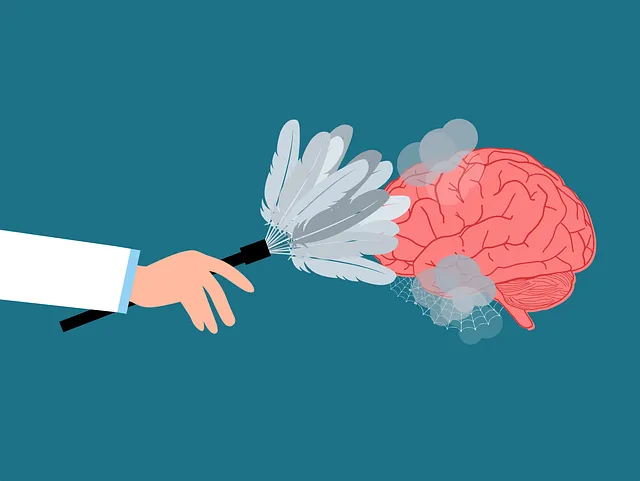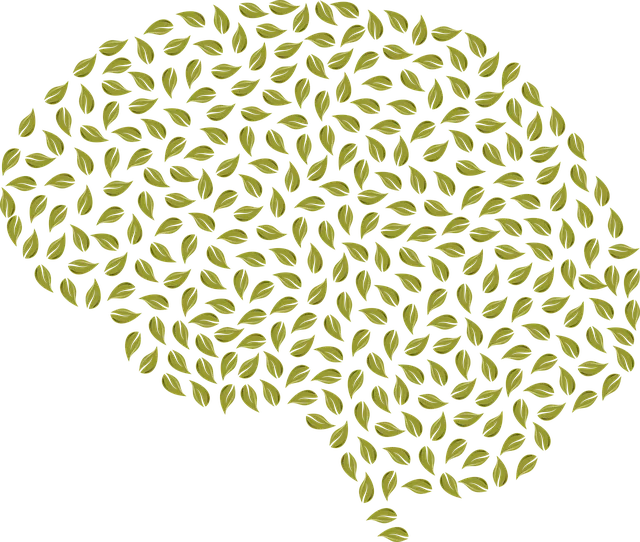The Kaiser Permanente mental health department in Boulder faces a diverse patient base, highlighting the need for cultural competency training among healthcare providers. By integrating exercises like Mental Wellness Journaling and Risk Management Planning, they enhance patient outcomes, communication, and relationships, especially when addressing cultural biases and stereotypes that could hinder mental health services. Through interactive workshops, role-playing, and online resources, the department fosters understanding of diverse self-care practices, reducing disparities in access to care and improving patient satisfaction. Contacting the department at [phone number] reveals their commitment to culturally sensitive, holistic mental health support.
In today’s diverse healthcare landscape, cultural competency is no longer an option but a necessity. This article explores this critical aspect of modern medical practice, focusing on the Kaiser Permanente mental health department in Boulder. We delve into the impact of cultural biases and stereotypes on patient care and highlight successful training methods employed by the department. Additionally, real-world applications from local healthcare providers showcase how competent care can revolutionize mental health services. Contact the Kaiser Permanente mental health department in Boulder for more information on their innovative approaches.
- Understanding Cultural Competency in Healthcare: A Necessity in Modern Practice
- The Impact of Cultural Biases and Stereotypes on Patient Care
- Training Methods to Enhance Cultural Competency in the Kaiser Permanente Mental Health Department
- Real-World Applications: Success Stories from Boulder's Healthcare Providers
Understanding Cultural Competency in Healthcare: A Necessity in Modern Practice

In today’s diverse healthcare landscape, cultural competency is no longer an optional skill but a necessity. Understanding and respecting different cultures, ethnicities, and backgrounds are crucial aspects of delivering quality patient care, especially in institutions like Kaiser Permanente, where diverse communities are served. The mental health department, in particular, plays a vital role in fostering inclusive practices, as it often interacts with individuals from various cultural and social contexts. This is evident when considering the high volume of inquiries received at the Kaiser Permanente mental health department phone number Boulder; each call represents a unique individual seeking support, reflecting the broader community’s need for culturally sensitive care.
By integrating cultural competency training into their practices, healthcare providers can enhance patient outcomes and build stronger relationships. The Mental Wellness Journaling Exercise Guidance, for instance, can encourage patients to express themselves in ways that align with their cultural identities, fostering a deeper sense of connection during therapy sessions. Moreover, Risk Management Planning for Mental Health Professionals equips them with the tools to navigate sensitive topics while considering cultural nuances, thereby improving communication strategies and ensuring patient safety. Effective communication is key to navigating complex issues like mental health, where understanding a patient’s cultural framework can lead to more effective treatment plans and improved overall mental wellness.
The Impact of Cultural Biases and Stereotypes on Patient Care

Cultural biases and stereotypes can significantly impact patient care within healthcare settings, especially when providers hold preconceived notions about certain ethnic or cultural groups. These biases may lead to miscommunication and a failure to deliver culturally sensitive care. For instance, a provider with unconscious biases might assume that all patients from a specific community share similar health practices or beliefs, which could result in inappropriate treatment recommendations.
In the case of mental health services, this bias can be particularly detrimental. The Kaiser Permanente mental health department in Boulder, for example, may encounter patients who have unique cultural perspectives on well-being and healing. Ignoring these differences could hinder effective therapy and support. Healthcare Provider Cultural Competency Training is crucial to address such issues, promoting understanding of diverse self-care practices and depression prevention methods, ultimately improving patient outcomes and satisfaction.
Training Methods to Enhance Cultural Competency in the Kaiser Permanente Mental Health Department

The Kaiser Permanente Mental Health Department in Boulder prioritizes cultural competency training to ensure that their services meet the diverse needs of their community. They employ various innovative methods to enhance understanding and sensitivity among staff members, reflecting the unique cultural tapestry of Boulder. One effective approach is through interactive workshops that encourage open dialogue about racial biases, ethical considerations, and the impact of systemic barriers on mental health care. These sessions often involve role-playing scenarios, case studies, and small group discussions to foster an empathetic and inclusive environment.
Additionally, Kaiser Permanente offers tailored programs like Positive Thinking workshops, Crisis Intervention Guidance training, and Mental Wellness Journaling Exercise guidance. By combining theoretical knowledge with practical exercises, these initiatives empower mental health professionals to deliver culturally sensitive care. The department also leverages online resources and virtual platforms to provide continuous learning opportunities for staff, ensuring that cultural competency remains a focal point in their professional development journey.
Real-World Applications: Success Stories from Boulder's Healthcare Providers

In Boulder, healthcare providers have been actively embracing cultural competency training with remarkable outcomes. Local organizations like Kaiser Permanente’s mental health department have pioneered innovative approaches that bridge cultural gaps and improve patient care. By integrating diverse therapeutic practices, these providers offer holistic support tailored to individual needs, encompassing not just physical health but also the intricate realms of self-care routine development for better mental health, mood management, and emotional healing processes.
A notable success story involves a collaborative initiative between local healthcare networks that has significantly reduced disparities in access to mental health services. Through cultural competency training, providers have learned to navigate complex patient dynamics, ensuring that everyone receives respectful, culturally sensitive care. This shift has fostered stronger patient-provider relationships and led to improved outcomes, with many individuals experiencing enhanced well-being through effective mood management techniques.
Cultural competency training is a game-changer for healthcare providers, as evidenced by successful initiatives in the Kaiser Permanente mental health department and local Boulder practices. By addressing biases and stereotypes, these programs enhance patient care, improve outcomes, and foster more inclusive environments. Given the diverse nature of communities, including Boulder, where folks from various backgrounds seek care, such training is essential. To learn more about cultural competency resources or to connect with providers in your area, contact the Kaiser Permanente mental health department at [phone number] or explore local healthcare networks in Boulder.






